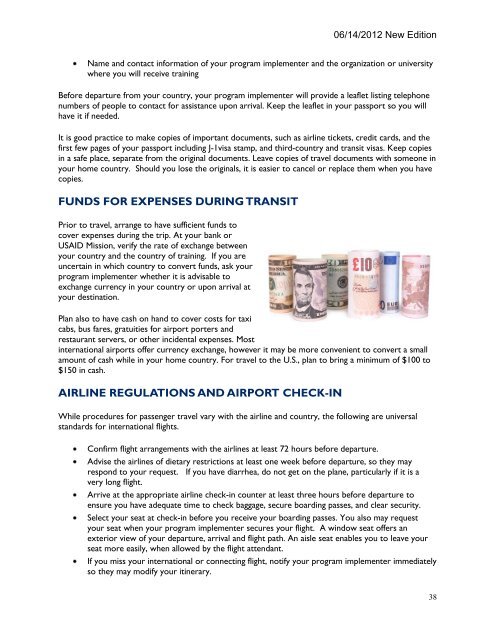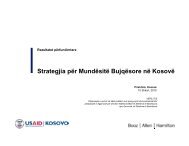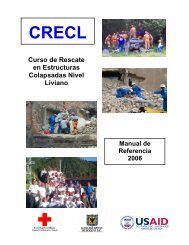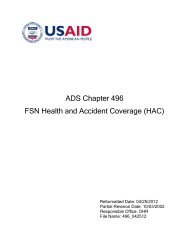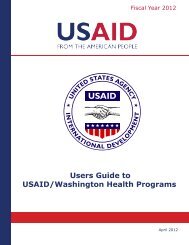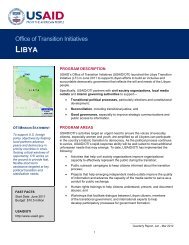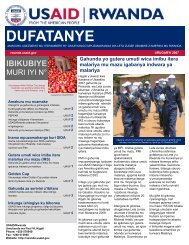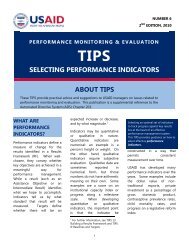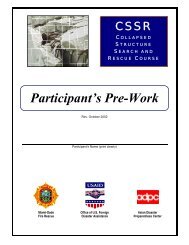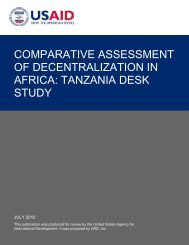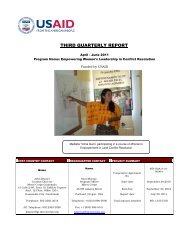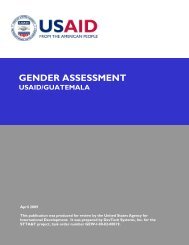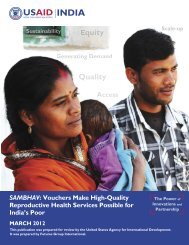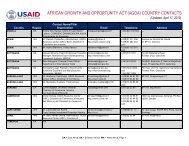Pre-Departure Orientation Manual - US Agency for International ...
Pre-Departure Orientation Manual - US Agency for International ...
Pre-Departure Orientation Manual - US Agency for International ...
Create successful ePaper yourself
Turn your PDF publications into a flip-book with our unique Google optimized e-Paper software.
06/14/2012 New Edition<br />
Name and contact in<strong>for</strong>mation of your program implementer and the organization or university<br />
where you will receive training<br />
Be<strong>for</strong>e departure from your country, your program implementer will provide a leaflet listing telephone<br />
numbers of people to contact <strong>for</strong> assistance upon arrival. Keep the leaflet in your passport so you will<br />
have it if needed.<br />
It is good practice to make copies of important documents, such as airline tickets, credit cards, and the<br />
first few pages of your passport including J-1visa stamp, and third-country and transit visas. Keep copies<br />
in a safe place, separate from the original documents. Leave copies of travel documents with someone in<br />
your home country. Should you lose the originals, it is easier to cancel or replace them when you have<br />
copies.<br />
FUNDS FOR EXPENSES DURING TRANSIT<br />
Prior to travel, arrange to have sufficient funds to<br />
cover expenses during the trip. At your bank or<br />
<strong>US</strong>AID Mission, verify the rate of exchange between<br />
your country and the country of training. If you are<br />
uncertain in which country to convert funds, ask your<br />
program implementer whether it is advisable to<br />
exchange currency in your country or upon arrival at<br />
your destination.<br />
Plan also to have cash on hand to cover costs <strong>for</strong> taxi<br />
cabs, bus fares, gratuities <strong>for</strong> airport porters and<br />
restaurant servers, or other incidental expenses. Most<br />
international airports offer currency exchange, however it may be more convenient to convert a small<br />
amount of cash while in your home country. For travel to the U.S., plan to bring a minimum of $100 to<br />
$150 in cash.<br />
AIRLINE REGULATIONS AND AIRPORT CHECK-IN<br />
While procedures <strong>for</strong> passenger travel vary with the airline and country, the following are universal<br />
standards <strong>for</strong> international flights.<br />
Confirm flight arrangements with the airlines at least 72 hours be<strong>for</strong>e departure.<br />
Advise the airlines of dietary restrictions at least one week be<strong>for</strong>e departure, so they may<br />
respond to your request. If you have diarrhea, do not get on the plane, particularly if it is a<br />
very long flight.<br />
Arrive at the appropriate airline check-in counter at least three hours be<strong>for</strong>e departure to<br />
ensure you have adequate time to check baggage, secure boarding passes, and clear security.<br />
Select your seat at check-in be<strong>for</strong>e you receive your boarding passes. You also may request<br />
your seat when your program implementer secures your flight. A window seat offers an<br />
exterior view of your departure, arrival and flight path. An aisle seat enables you to leave your<br />
seat more easily, when allowed by the flight attendant.<br />
If you miss your international or connecting flight, notify your program implementer immediately<br />
so they may modify your itinerary.<br />
38


